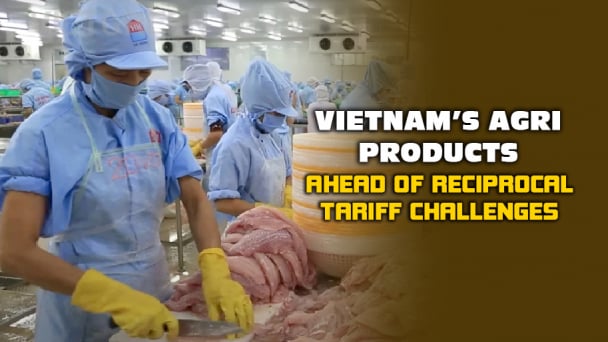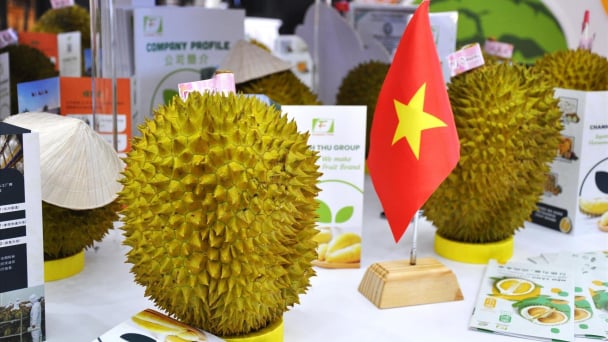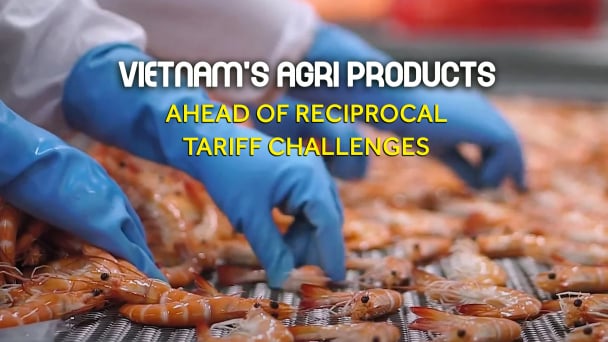May 30, 2025 | 10:36 GMT +7
May 30, 2025 | 10:36 GMT +7
Hotline: 0913.378.918
May 30, 2025 | 10:36 GMT +7
Hotline: 0913.378.918

Vietnam's rice exports to Africa have been on an upward trend in recent years. Photo: Son Trang.
As indicated by the Asia-Africa Market Department (Ministry of Industry and Trade), Vietnam continues to export grains to Africa. Vietnam's rice export turnover to Africa increased from 411 million USD in 2017 to 692,6 million USD in 2021 during the 2017-2021 period. Normal rice comprised approximately 15-20% of Vietnam's total export revenue to Africa.
Nevertheless, Vietnam's rice export revenue to Africa decreased by 10.5% in 2022 compared to 2021, reaching a mere USD 620 million (equivalent to 16% of Vietnam's total export value to this continent).
The primary cause of this decline was the rise in global food stockpiling as a result of economic and political uncertainties. This increase in stockpiling led to an increase in rice prices, which in turn prompted certain African countries to decrease their rice imports. Furthermore, the Covid-19 pandemic substantially impacted Africa's rice imports, as global rice supplies were disrupted and rice-exporting countries reduced exports to ensure food security.
Vietnam's rice exports to Africa improved in 2023, with a total of 1.3 million tons valued at USD 788 million. This represents a 6.3% increase in volume and a 27.7% increase in value compared to 2022.
Some African countries have increased rice production in recent years to meet domestic demand and increase reserves. However, this endeavor is hindered by financial and agricultural technology constraints. The continent's rice consumption demands have been exacerbated by the migration of Asian labor, the expanding tourism industry, and the increasing population.
Consequently, Africa continues to be a prospective market for Vietnam to increase its rice exports in the years ahead. The primary importers of Vietnamese rice in Africa are Senegal, Ghana, Cameroon, and Côte d'Ivoire.
Vietnam's rice exports to Africa were mainly long-grain white rice with 15% and 25% broken content in the past. Vietnam's market share in Africa has declined in recent years as a result of the fierce competition from rice produced in Thailand, India, and Pakistan. These nations possess an advantage in the form of low-priced, accumulated white rice that is comparable to the affordability of the majority of African consumers.
In addition to low-cost rice, the demand for fragrant rice in Africa is increasing as a result of urbanization and increased urban incomes. Ms. Nguyen Chi Mai, Vietnam's Trade Counselor in Nigeria (and Ghana), observed that urban residents in Ghana favor imported rice, particularly aromatic rice, over local varieties. Consequently, urban areas consume 80% of the imported rice in Ghana, and restaurants frequently employ fragrant imported rice to attract customers. The primary sources of fragrant rice that Ghana imports are the United States, Canada, and Vietnam.

A ripe rice field in the Mekong Delta. Photo: Son Trang.
African importers have been increasingly interested in Vietnamese aromatic rice as a result of its competitive price and consistent quality, which is in line with the current trend. Mr. Do Ha Nam, Vice President of the Vietnam Food Association, observed that Vietnam's aromatic rice exports to Africa have experienced significant development in recent years.
According to the Asia-Africa Market Department, fragrant rice is presently one of the fastest-growing rice export segments for Vietnam in Africa. Consequently, the expansion of fragrant rice exports to Africa is a viable approach to enhancing the market share and revenue of Vietnamese rice on the continent.
The Asia-Africa Market Department recommends that government agencies continue to review and enhance the mechanisms for managing rice exports and overseeing rice export business activities in accordance with market trends in order to facilitate the integration of traders into the global rice value chain and promote Vietnamese rice exports to Africa.
To promote rice trade cooperation with Africa, it will be imperative to capitalize on bilateral cooperation mechanisms and agreements, including Joint Committees and Trade Sub-Committees, between Vietnam and African countries. Furthermore, investigate the feasibility of the signing of new or renewed Memorandums of Understanding (MOUs) regarding rice trade cooperation with countries that are either in the process of importing rice for reserves or have not yet liberalized their rice market.
Payment and logistics assistance are critical issues that necessitate government support, as Africa is a remote market with potential hazards in transportation and payment.
In order to increase the visibility of Vietnamese rice brands in the African market, associations should prioritize the development and execution of trade promotion programs.
Businesses should take the initiative to enhance the quality of exported rice in order to establish enduring trust with African consumers. In order to establish a sustainable and enduring presence in the African rice market, it is imperative that companies prioritize the training of personnel with foreign language skills, specialized knowledge in international trade, and experience in the rice export business.
Translated by Linh Linh

(VAN) Reciprocal tariffs are exerting pressure on U.S. exports, prompting Vietnamese firms to shift their focus to Muslim markets, Thailand, and Brazil.

(VAN) A free booth for two years at Xinfadi, Beijing's largest wholesale market, will be allocated to Vietnam's agricultural products.

(VAN) Vietnamese shrimp exporters are actively looking for alternative markets and accelerating shipments to the United States in response to the pressure of impending reciprocal tariffs. This is occurring during a temporary tariff suspension.

(VAN) The import-export turnover between Vietnam and Singapore rose amid a trade rebound, with machinery, electrical equipment, and fuels making up the majority of the transaction value.

(VAN) Director General of the General Administration of Customs of China, Ms. Sun Mai Jun, has pledged to implement measures that will ease the import process for Vietnamese agricultural products.

(VAN) Although Vietnam is still increasing its coffee exports, the industry is currently in the process of determining market strategies in response to the U.S. imposition of reciprocal tariffs.

(VAN) With rising demand in Muslim-majority countries, Halal certification is becoming a critical passport for Vietnamese agricultural products seeking sustainable market access and consumer trust in the Middle East and Africa.